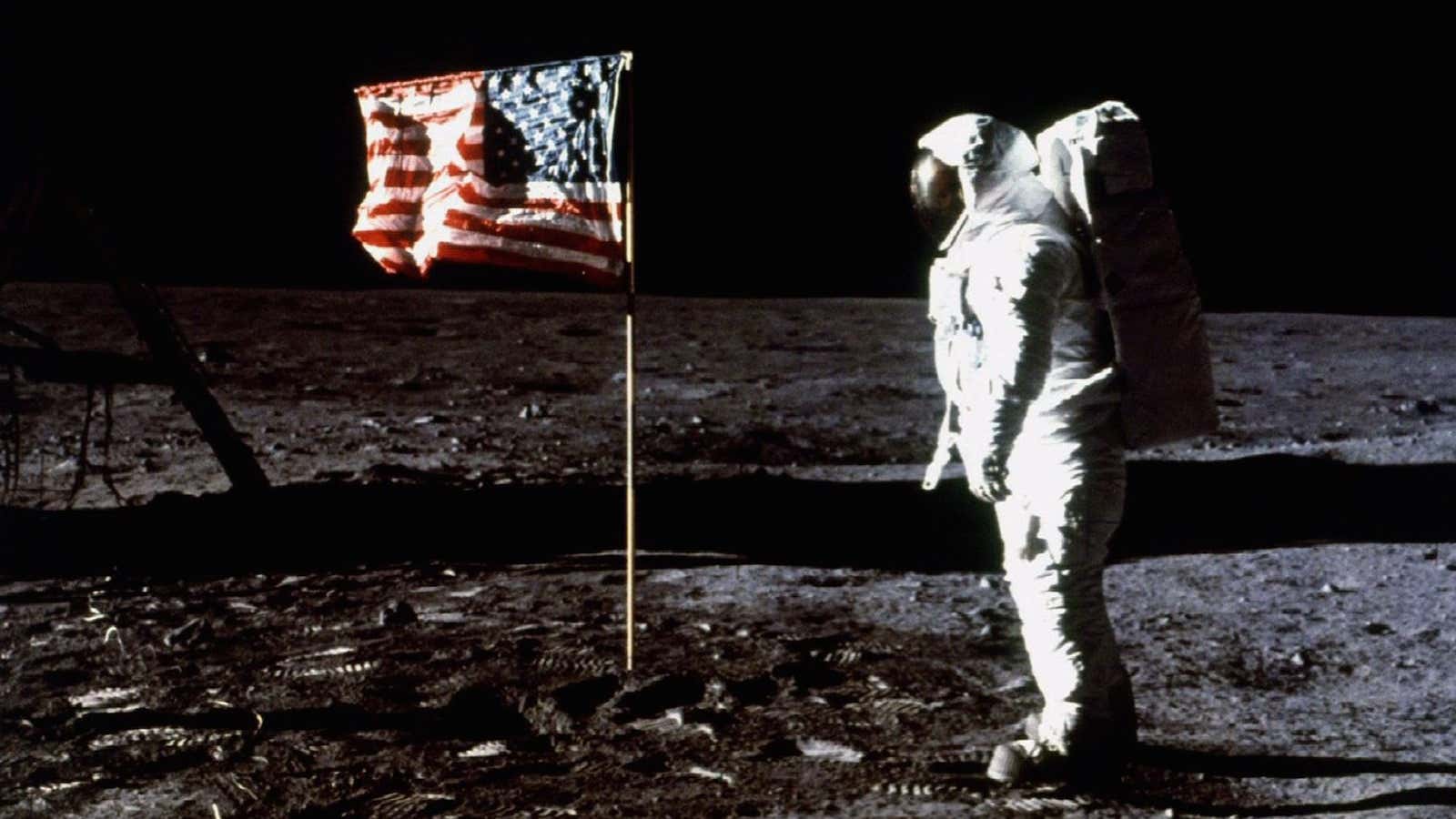1969. I turned 13 that year, the last year of the ’60s. I recall so much from that decade, even if I didn’t understand it at the time. The US Civil Rights movement in full bloom. A young American president assassinated. The Vietnam War’s escalation. The Cold War.
Above all, I remember the moon landing.
In my middle school, black and white TVs rolled into classrooms whenever there was a launch of American astronauts. Out came the rabbit ears (a TV antenna for those unable to fathom the world without cable, satellites, and Wi-Fi), the TV turned on, and we’d watch the shuttles launch live. Astronauts became my heroes, and when the inevitable question came as to what I wanted to do when I grew up, the answer was easy.
By the summer of 1969, the whole world knew that the United States was sending astronauts to the moon—two of the three Apollo 11 crew members were going to land on, walk on, and return home from it. Was this possible? I later learned president Richard Nixon had prepared a speech in the event the crew didn’t make it home.
That summer, my mom packed my suitcase for my annual summer visit with my grandmother and aunt in Manhattan. It was July: there would be baseball games, museums, movies. Yet, this visit was fated to be a bit different from the others. On July 20, 1969, I sat in the mezzanine of Yankee Stadium. I don’t remember who was playing that day, but I remember that the game was interrupted by news that the Apollo 11 lunar module had landed on the moon.
The stadium erupted in cheers; everyone stood and broke out into an impromptu rendition of “America the Beautiful.” That evening, I stayed up, rewarded by the sights and sounds of Neil Armstrong and Buzz Aldrin descending Apollo 11’s ladder and stepping onto the moon for the first time.
We know the facts about the Apollo program and missions, but do you ever wonder what Neil, Buzz, and command module pilot Michael Collins thought about before, during, and after the mission? Did they worry? Did the experience change them? If so, how? Though I never walked on the moon, almost 32 years after that day in Yankee Stadium, I earned a chance to understand it.
On February 7, 2001, I strapped into my seat as the pilot of STS-98 onboard the Space Shuttle Atlantis. Was I worried? Yes. About my safety? No. As the launch clock counted down, I thought through my responsibilities for the eight-and-a-half minute ascent and the rest of my mission. So many men and women had put their blood, sweat and tears into preparing the vehicle, our precious cargo (the US laboratory Destiny), and into training us. I had to do my job—and do it well—or I would let the whole team down. This mission wasn’t about me.
A little while after I reached orbit, I finally was able to unstrap, float to the shuttle mid-deck, and remove my launch suit. As I began to drift, a crewmate grabbed me, pressed my face to a window, and told me to look back at the Earth.
It was the first moment that I had had a chance to observe it from space. As I looked at the majesty of our planet from 200 miles above, I was overcome with emotion. I thought of my fiancé and parents, but especially my dad. His health was failing, and I had been concerned that he might not make it to my launch. I was ecstatic knowing he did. He passed away four months later.
Over three shuttle missions, I always found time to view Earth—a reminder that the mission was not about me. Watching the world go by at roughly five miles per second creates a unique perspective: It’s nearly impossible to tell where one country’s border ends and another begins.
What did Neil and Buzz think about when they walked the moon? Every anniversary of their landing brings forth vivid boyhood memories for me, but it’s also a time when I can’t help but reflect on what I learned as an astronaut. Two men were put on the moon through the work of thousands. To protect the Earth, we must work together in the same way. Humans have to teach ourselves to co-exist peacefully and sustainably—that’s the true legacy of Apollo 11.




